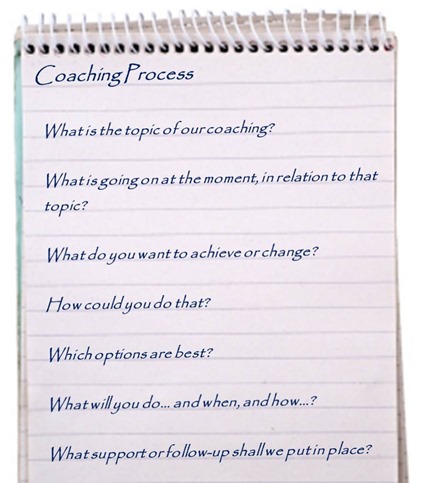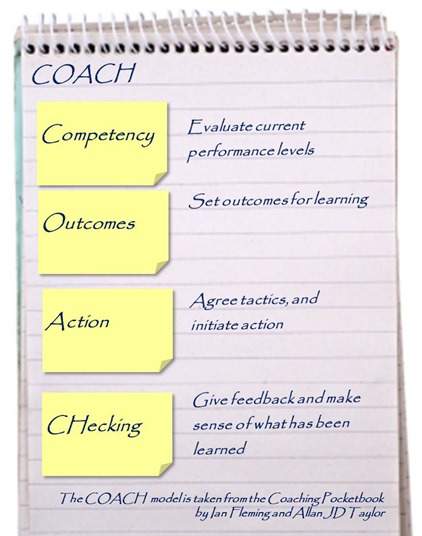Pocketblog has gone back to basics. This is part of an extended management course.
Your job, as a manager, is to coordinate people and resources to get work done. Important parts of that are:
- getting the most from your people
- getting things done ever-more effectively and efficiently
- developing your team’s capacity and capabilities
- motivating people to work at their best
and so on…
One management skill has emerged as the solution to all of this. It does not stand alone, but over the last thirty years we have learned its power to enhance individual and organisational performance. That skill is coaching.
Coaching is not new
The best managers, leaders, and teachers have been doing coaching for years – hundreds and thousands of years. What is new, is that the process and techniques have been studied, systematised and turned into a thousand books, articles and training courses. This means that coaching is no longer the preserve of the few who figure it out for themselves and have a natural talent: anyone can learn it, practise it and master the skills.
At its best, coaching is a valuable conversation that lets one person figure out what they need to do to get the results they need.
The Principles of Coaching
The core principle of coaching is respect for the person you are coaching. As a coach, you need to assume that the other person can find the solution to the challenge they are working on, whether it is a workplace problem, improving under-performance, or preparing themselves for a promotion.
To support this, the fundamental skills are
Questioning – asking good questions that increase the other person’s awareness of their situation and help them perceive things in a new way
Listening – so that you can ask questions founded on exactly what they say
Patience – giving time for the other person to work out solutions for themselves
Trust – recognising that they will make mistakes, but that is a valuable part of learning
As a manager, you need to balance opportunities to learn (sometimes by making mistakes) with the need to manage risk. But the thing that surprises most new coaches is how often the coaching process finds a good solution first time – and often a better solution than the coach themself would have thought of.
The Process of Coaching
There are a lot of methodologies for coaching – many of them proprietary. Most of them offer an acronym to help remember the areas for questioning and exploration. These are:
One acronym is, in some ways, the obvious one: COACH

Coaching is one of the most discussed topics on the Pocketblog. You may also like the following Pocketblogs:
An Infinite Number of Coaching Acronyms
So you can see how different models follow the process above – and find the acronym you like best.
Keep it SIMPLE
A look at the Solution Focus approach to coaching.
Who is getting in your way?
The ideas of Timothy Gallwey who many regard as the originator of modern coaching as used in the business and management world.
Let’s sort out poor performance, Part 2: Turnaround
An example of how coaching fits into the pragmatic world of management.
The Awesome Power of Mentoring
Mentoring is often discussed in the same sentence as coaching. Find out what it is and how it can work for you, as a new manager.
Questions, Questions, Questions
…is about the art of – questions!
and
Listening
is about listening



